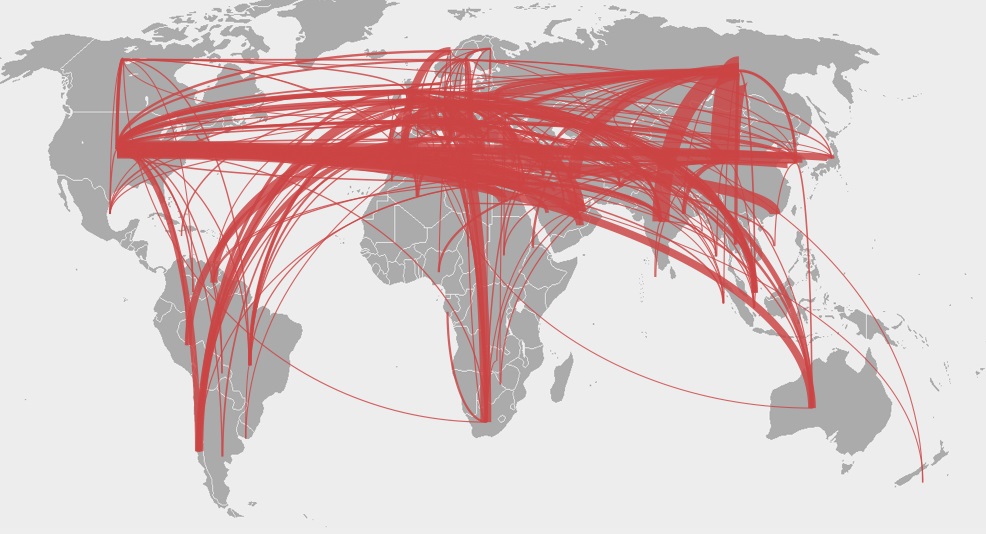A map of global trade routes. (Credit: Jeff Warren/Flickr)
Is working remotely in your future?
For many, it already is. A 2016 poll from Gallup found that 43 percent of Americans are working remotely at least part of the time, up from 39 percent in 2012. According to a survey at the London Global Leadership Summit, executives anticipate more than half of their employees will be remote by 2020. With a workforce less attached to a physical office, how does this affect businesses?
Dr. Ram Mudambi, professor in the Fox School, seeks to understand this question and others like it, which play at the intersection of business, geography, and technology.
To do that, he launched International Business, Economic Geography, and Innovation (iBEGIN), a now-annual conference that aims to enhance research around the knowledge economy—based on intellectual capital and human talent—that sustains international business today.
“iBEGIN is based on the idea that connectivity across space is the ‘invisible web’ that underlies all human civilization,” Mudambi explains.
This past December, Mudambi and several of his fellow Fox School faculty and doctoral students attended iBEGIN at Ca’ Foscari University of Venice. The conference—sponsored by the Fox School’s Center for International Business Education and Research (CIBER) and the Office of Research, Doctoral Programs, and Strategic Initiatives, as well as Ca’ Foscari University—brings together experts from the fields of business, geography, and technological innovation to explore international connectedness in time, space, and economy.
“Innovation is the outcome of social interactions among people, through either organizations or personal relationships,” says Mudambi, “Studying such complex phenomena requires a holistic approach.”
This year, attendees sought to learn more about how employees who work remotely, away from their companies’ main offices or headquarters, impact how international businesses function and grow.
When remote employees spend time with their colleagues face-to-face, the parties are more likely to value their time together, increase their level of attention, and emphasize knowledge and information exchange. The conference attendees discussed how international businesses were using remote work, what forms of temporary co-location increased creative interaction and long-term relationships, and which mechanisms improved knowledge exchange.
iBEGIN expands upon the work of the CIBER, Temple University’s premiere program to promote academic research, curriculum development, and outreach programs in international business.
Funded by the Department of Education, CIBER plays a vital role in producing cutting-edge international business research, promoting international ideas within the community, and fostering worldwide learning among Temple students and faculty. As one of only 17 centers in the country, CIBER has received continuous federal funding since its inception in 2002.

